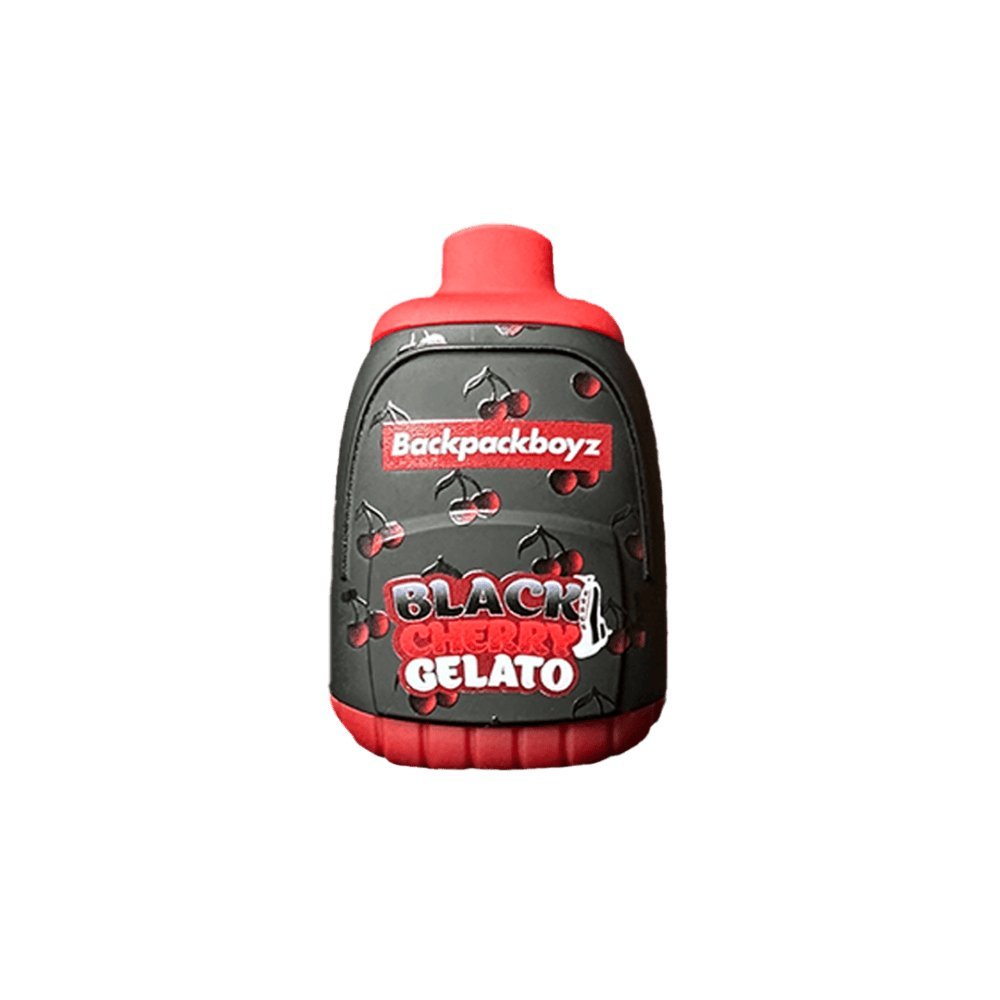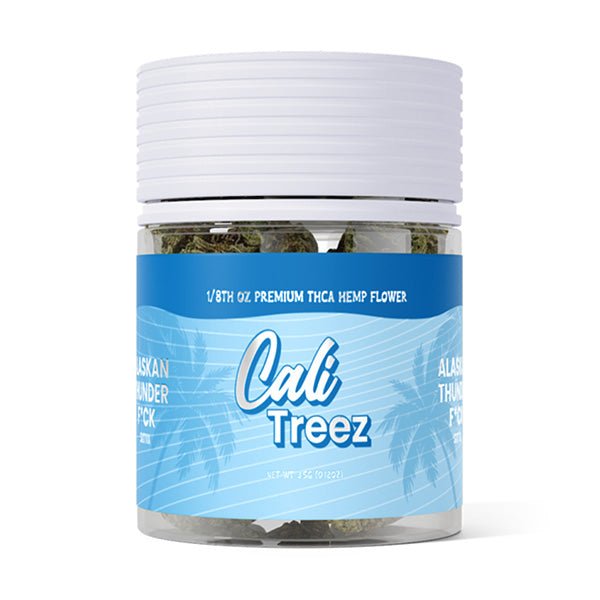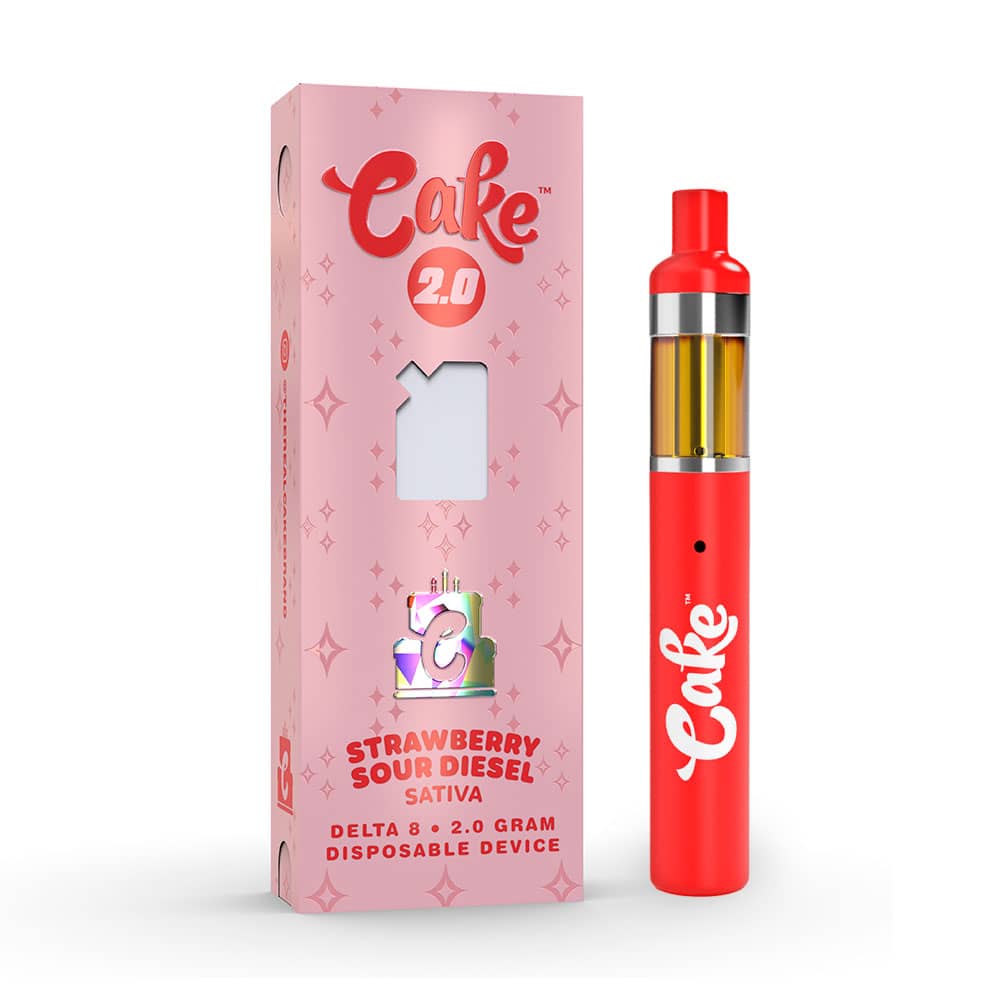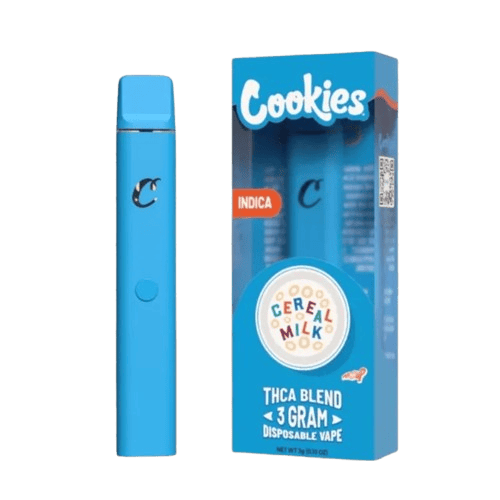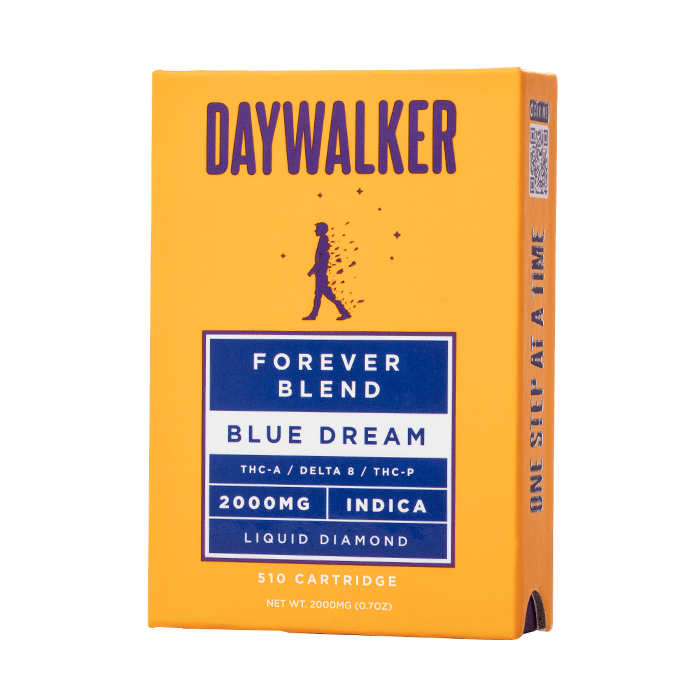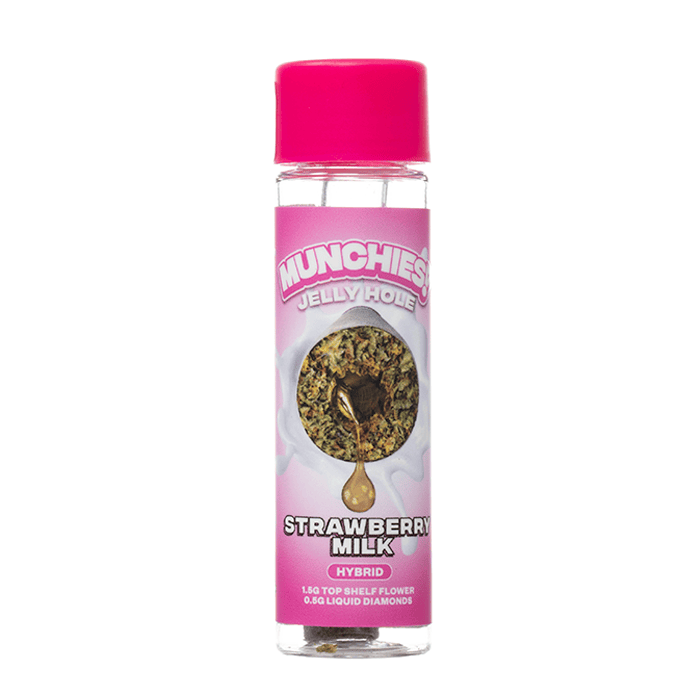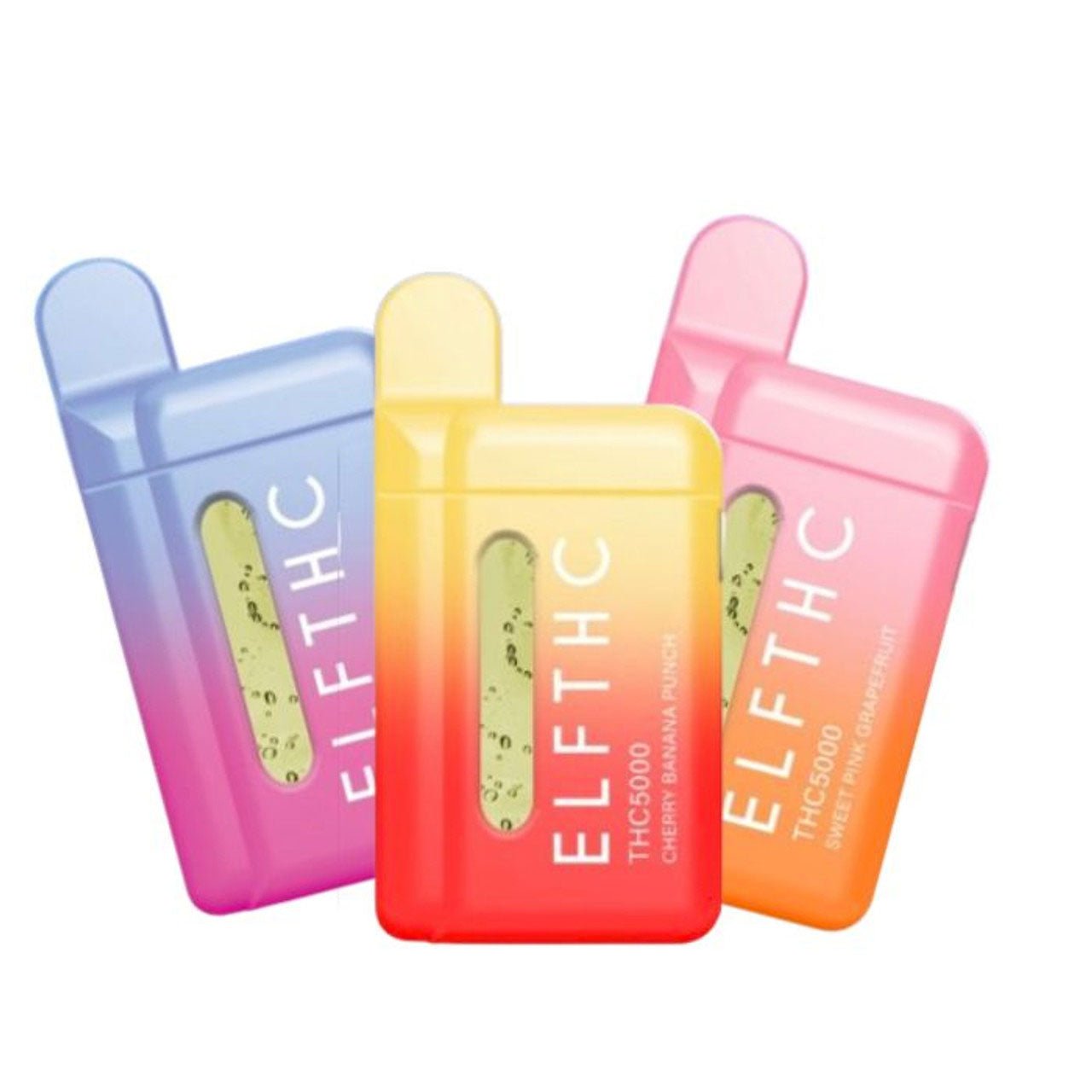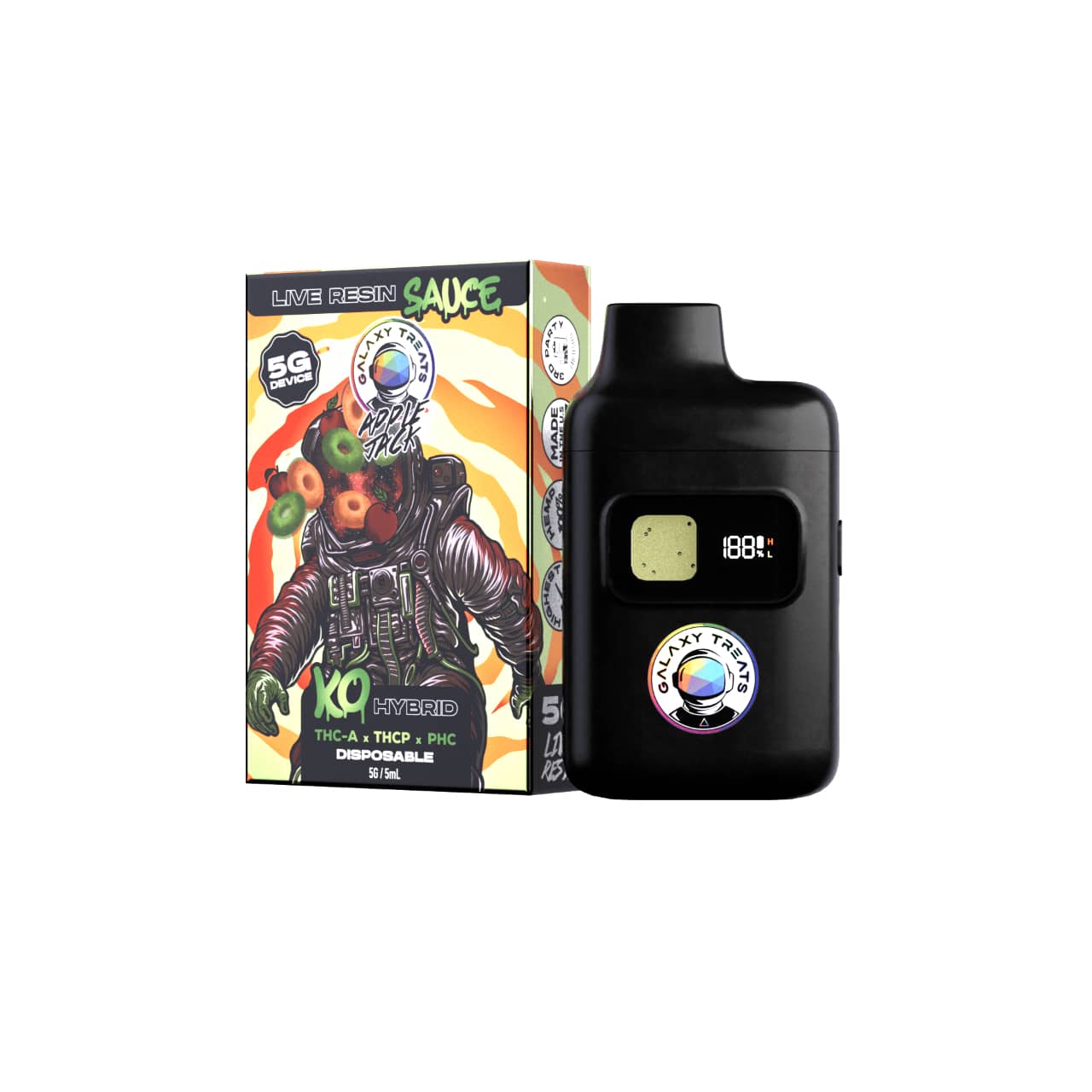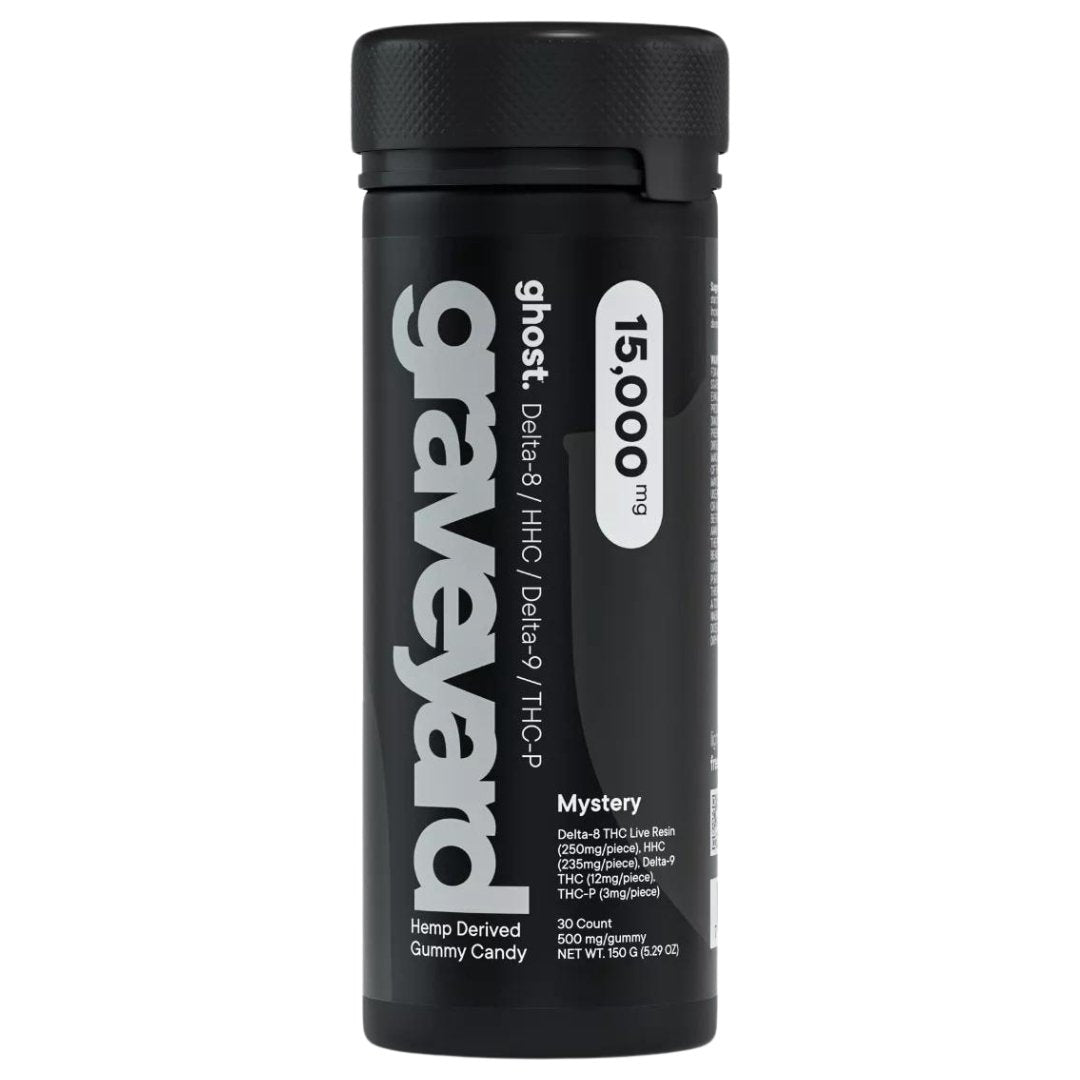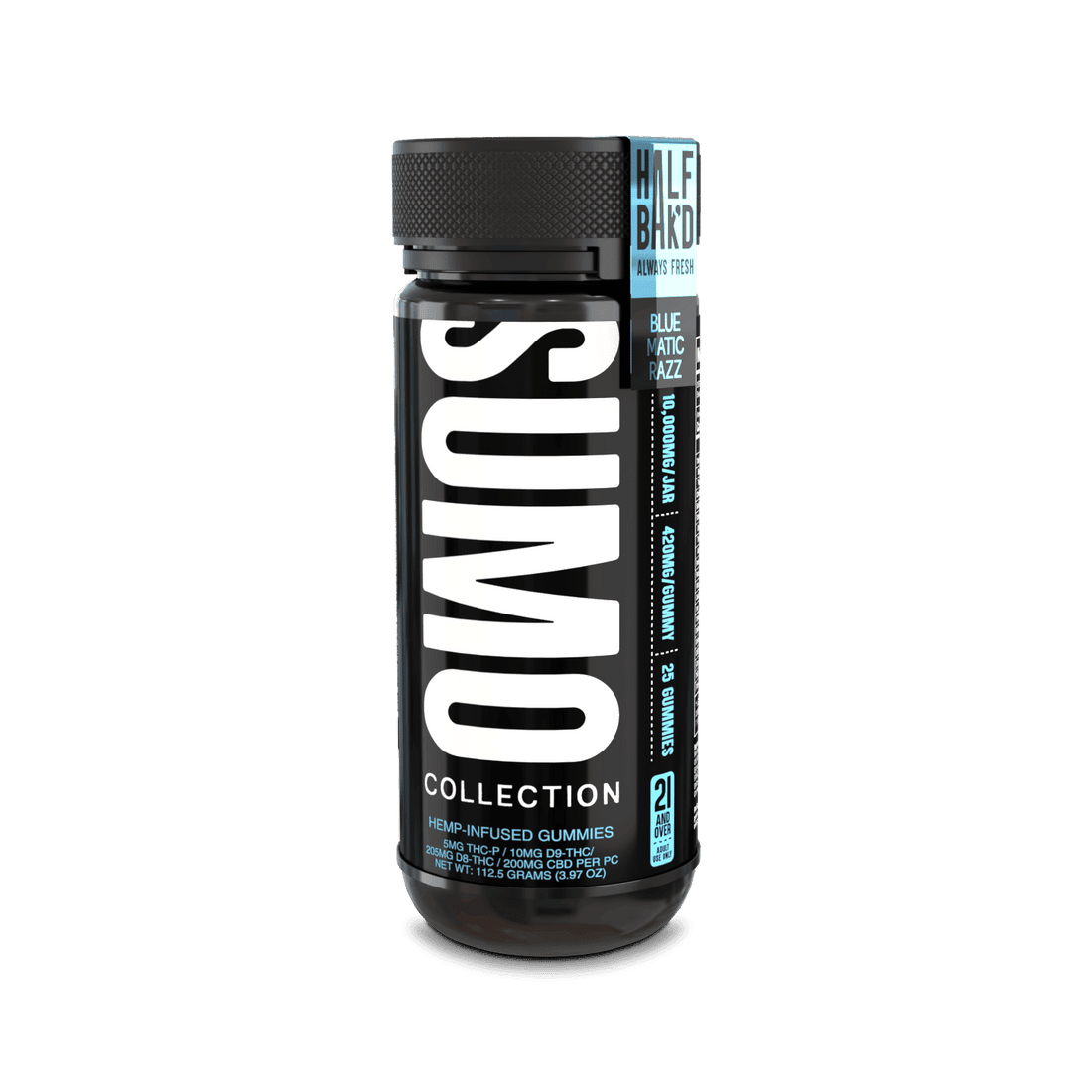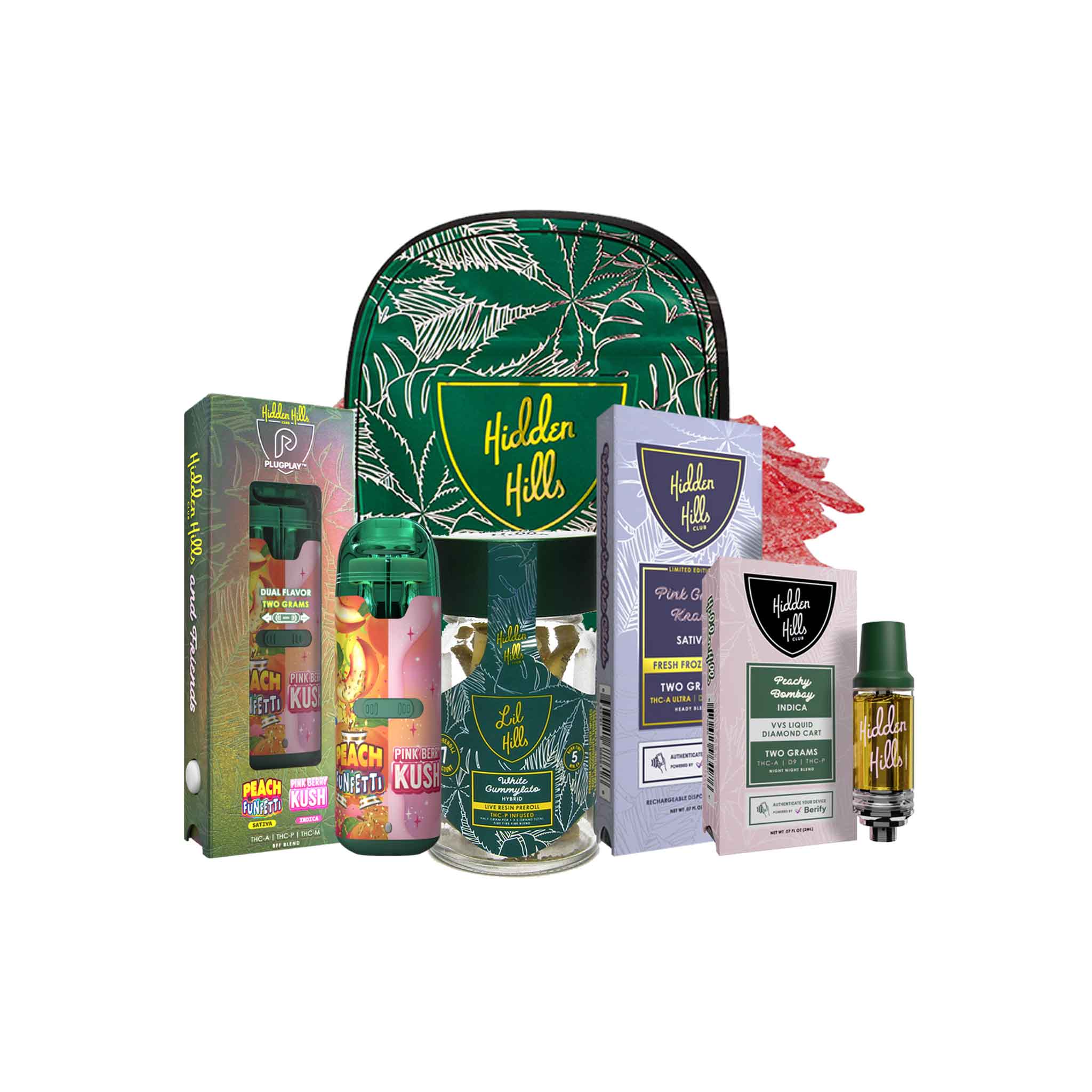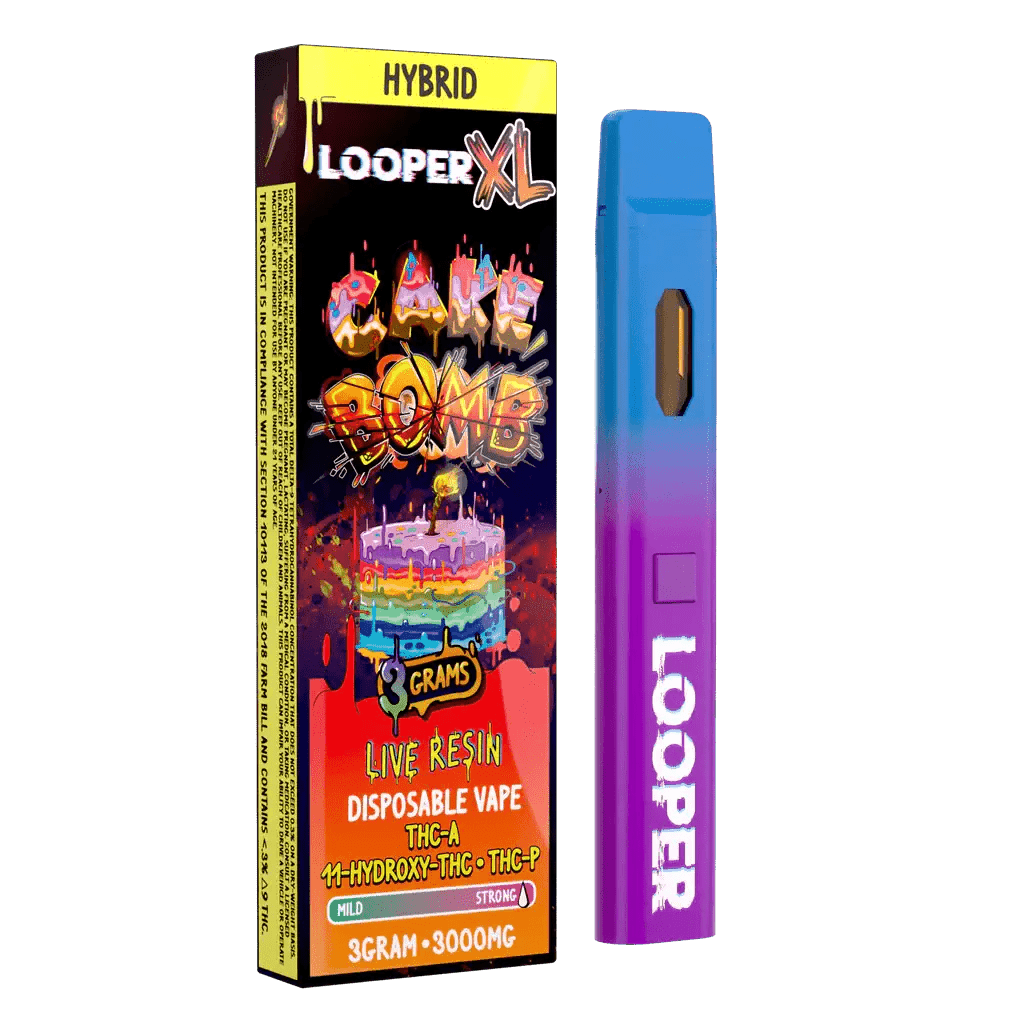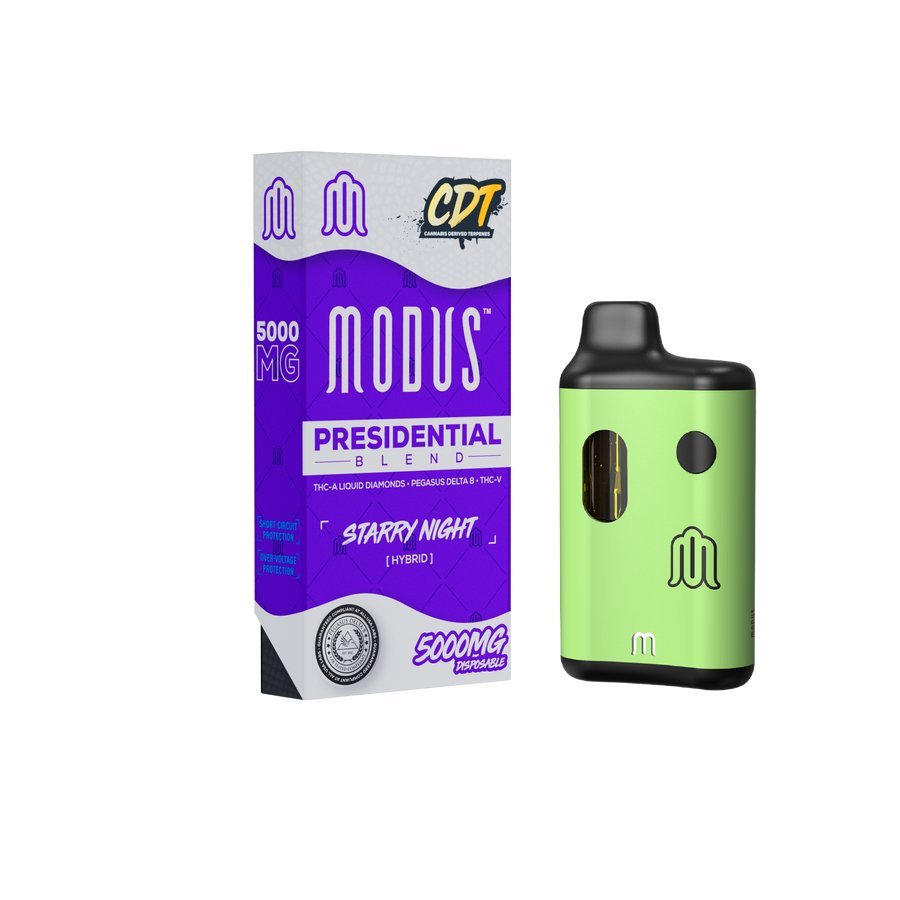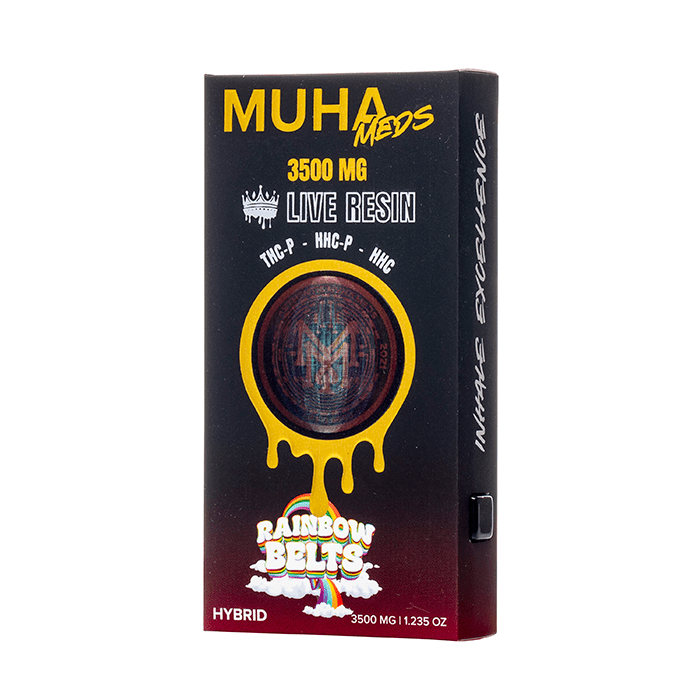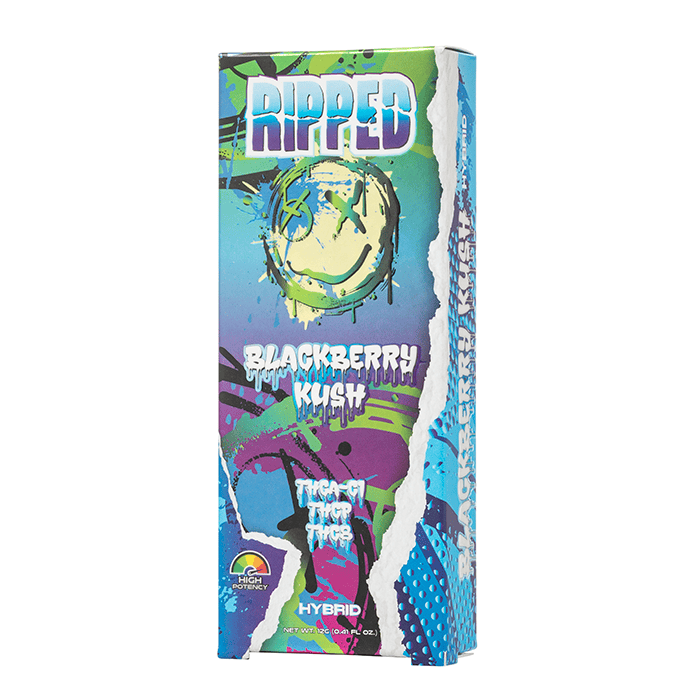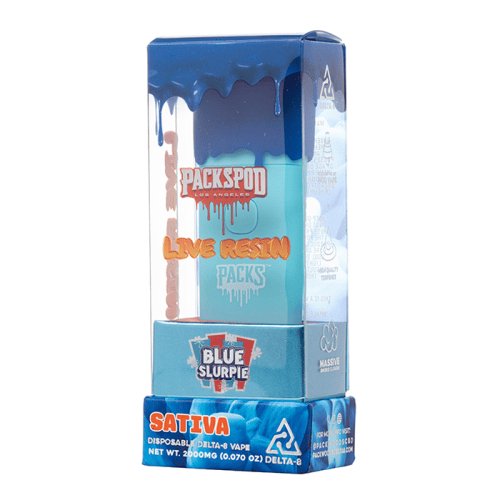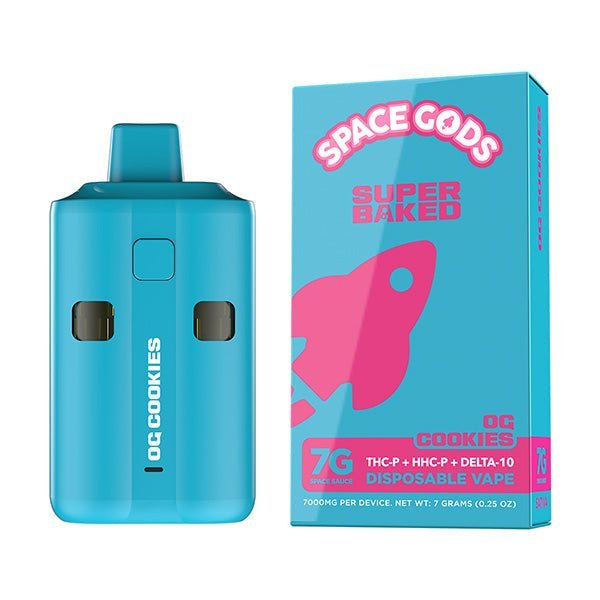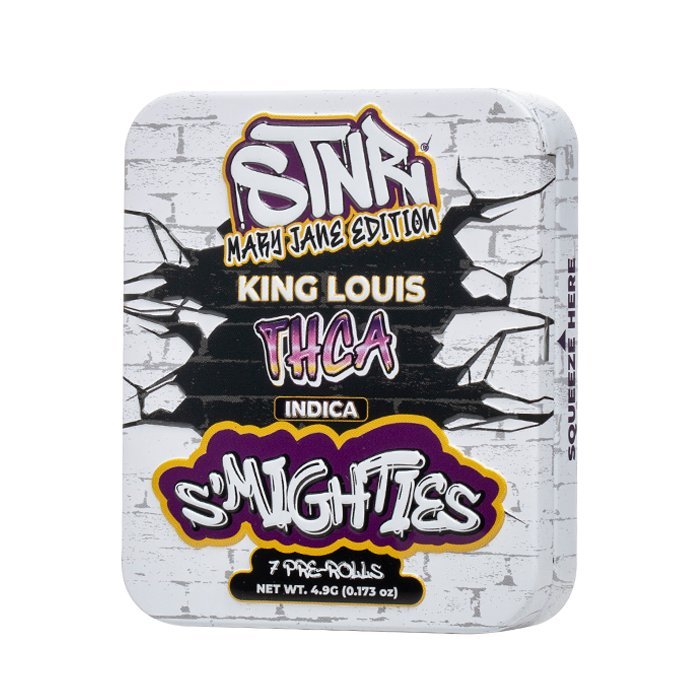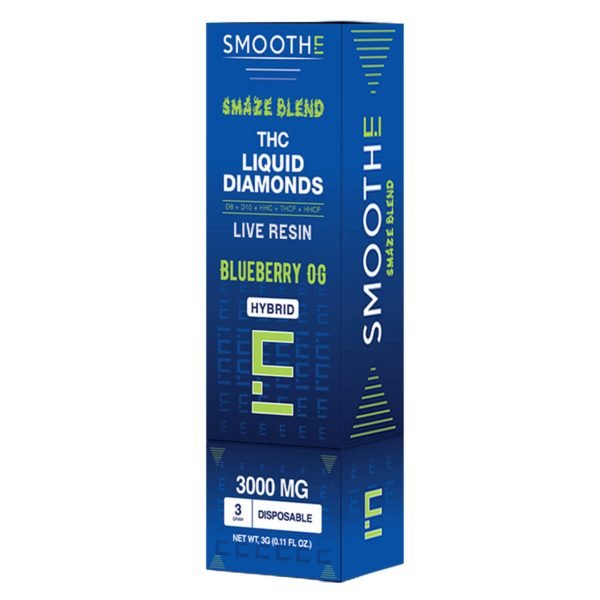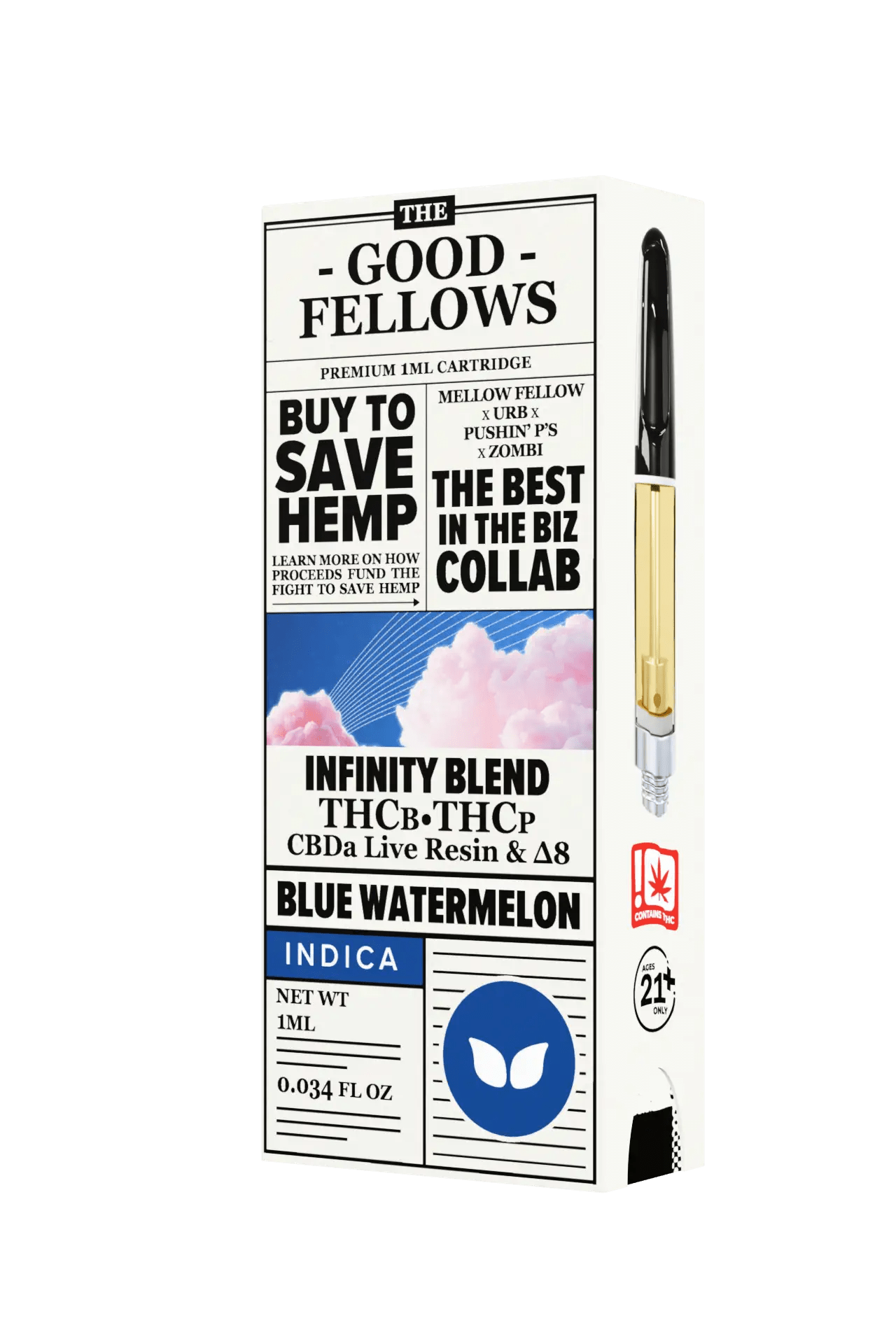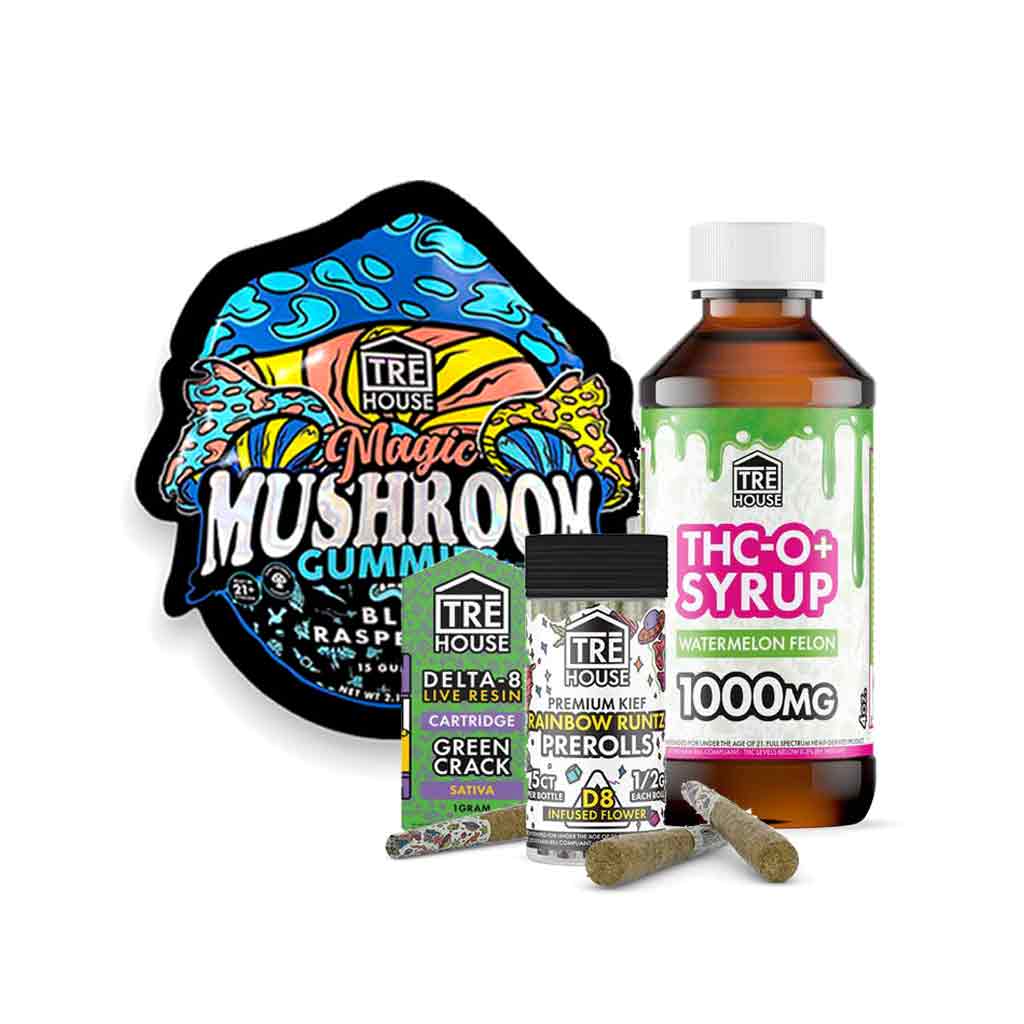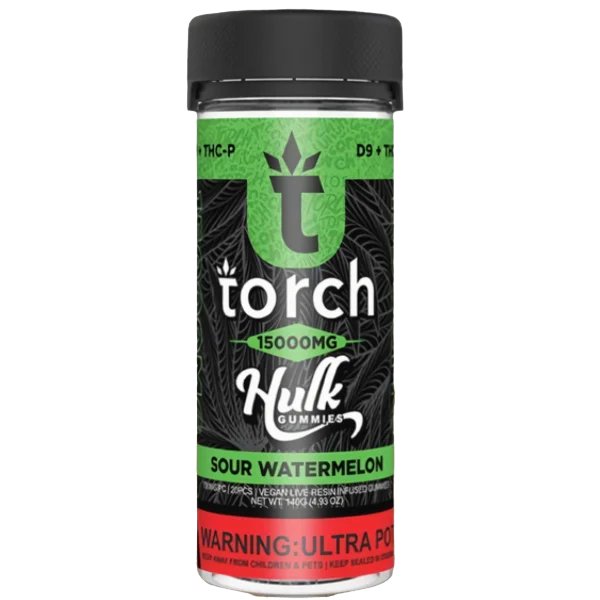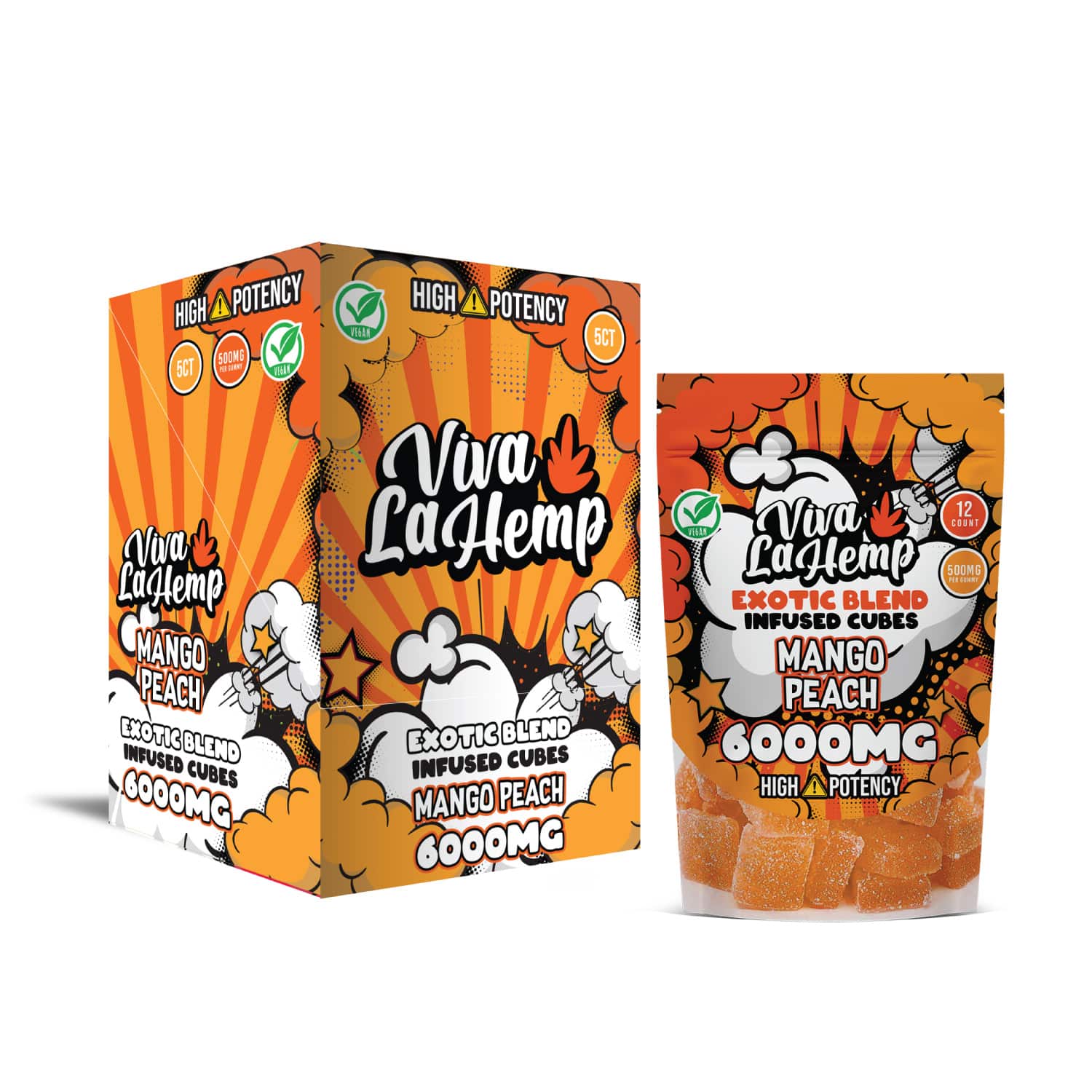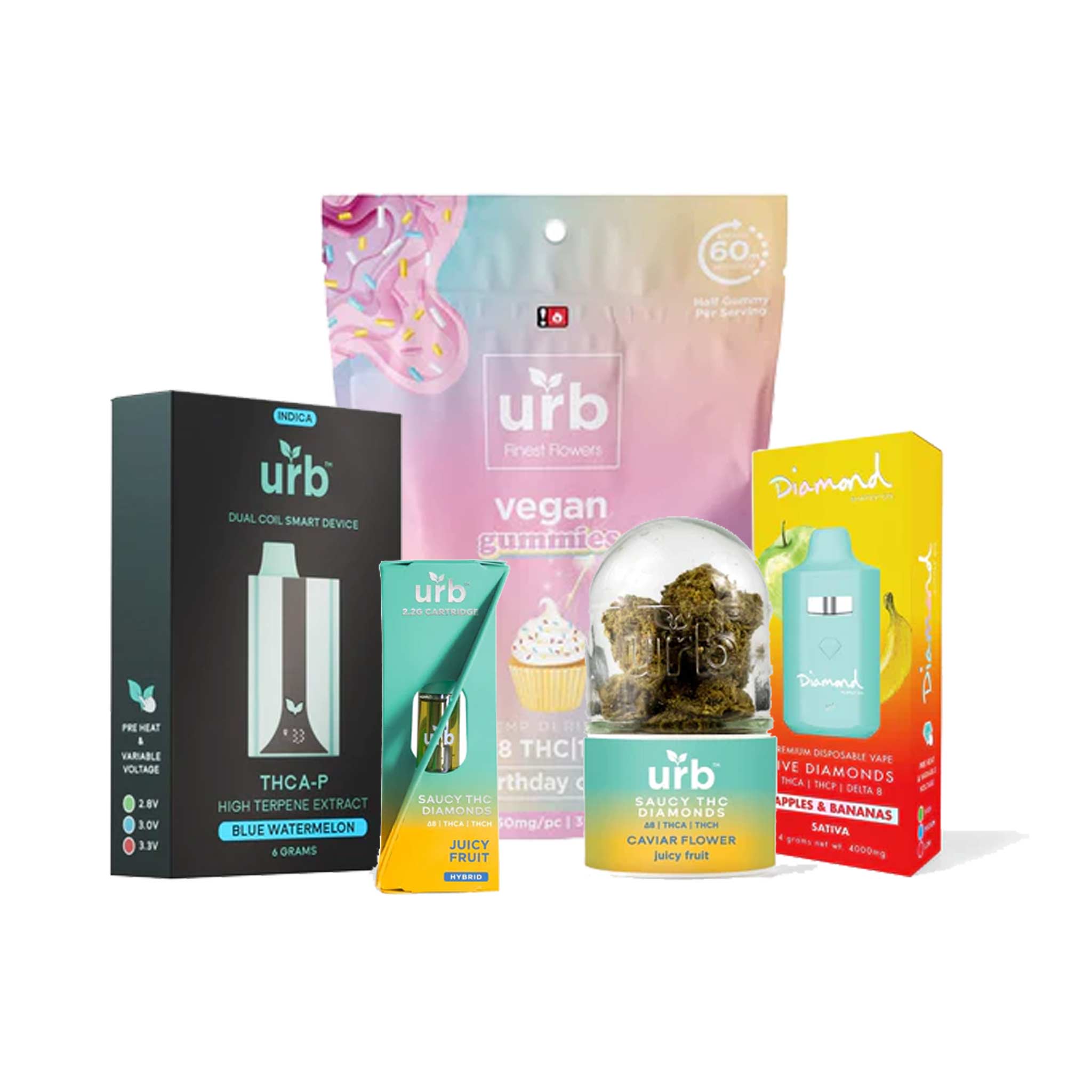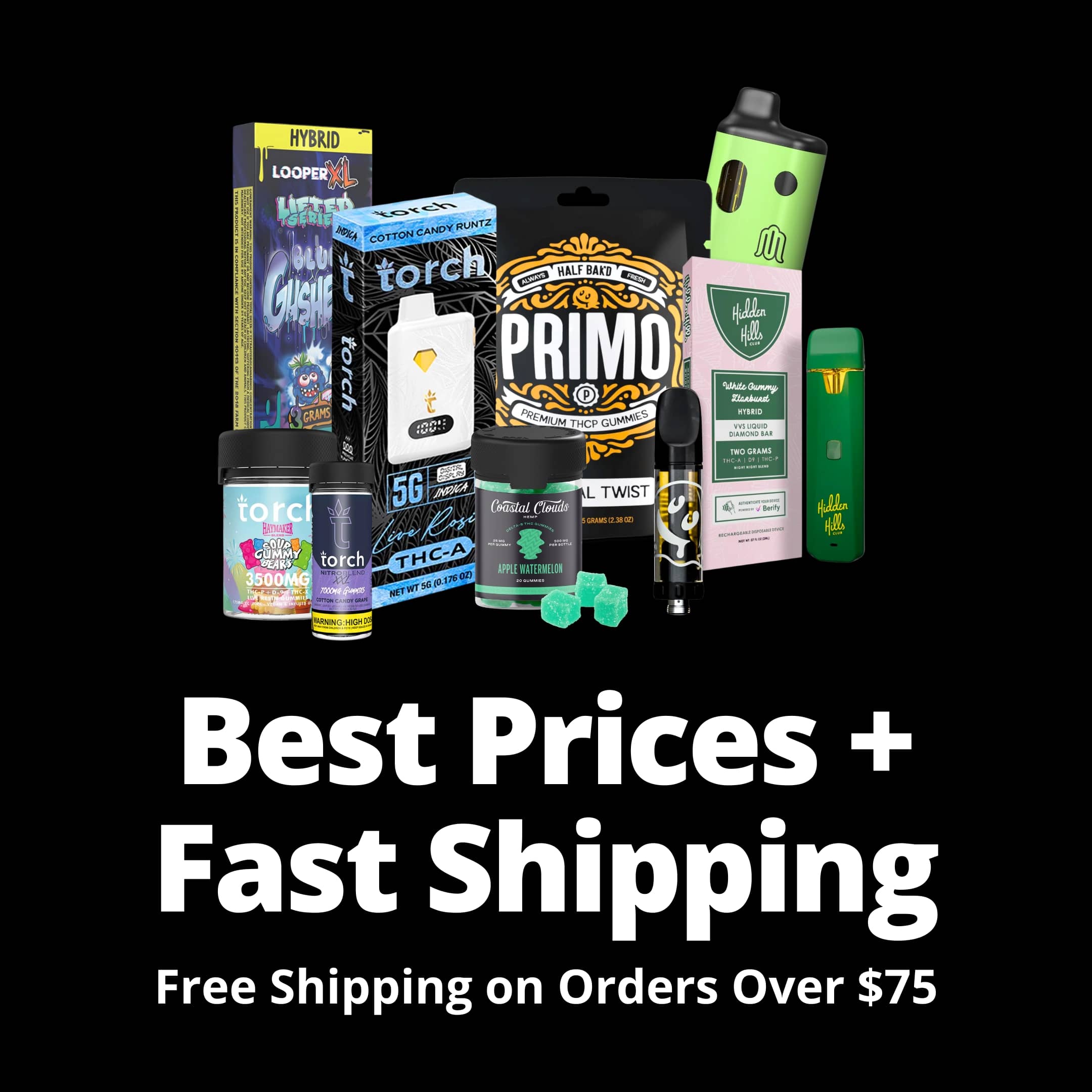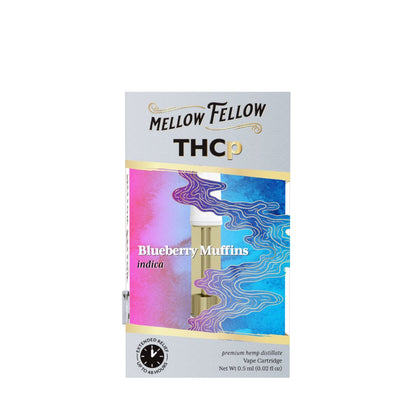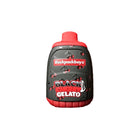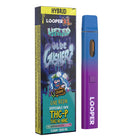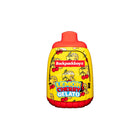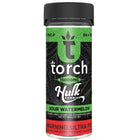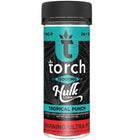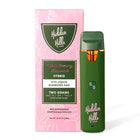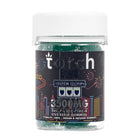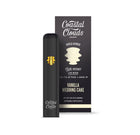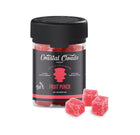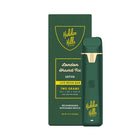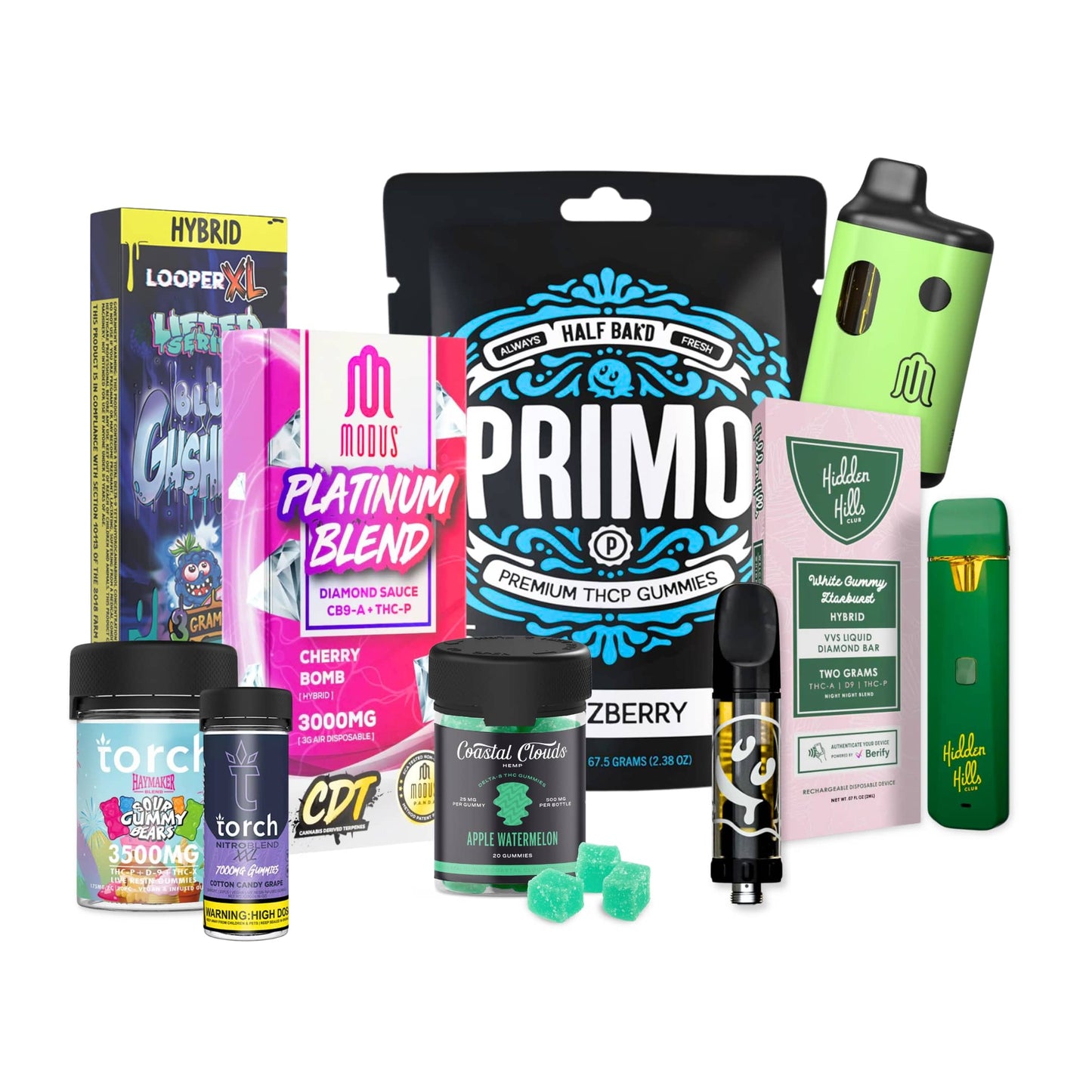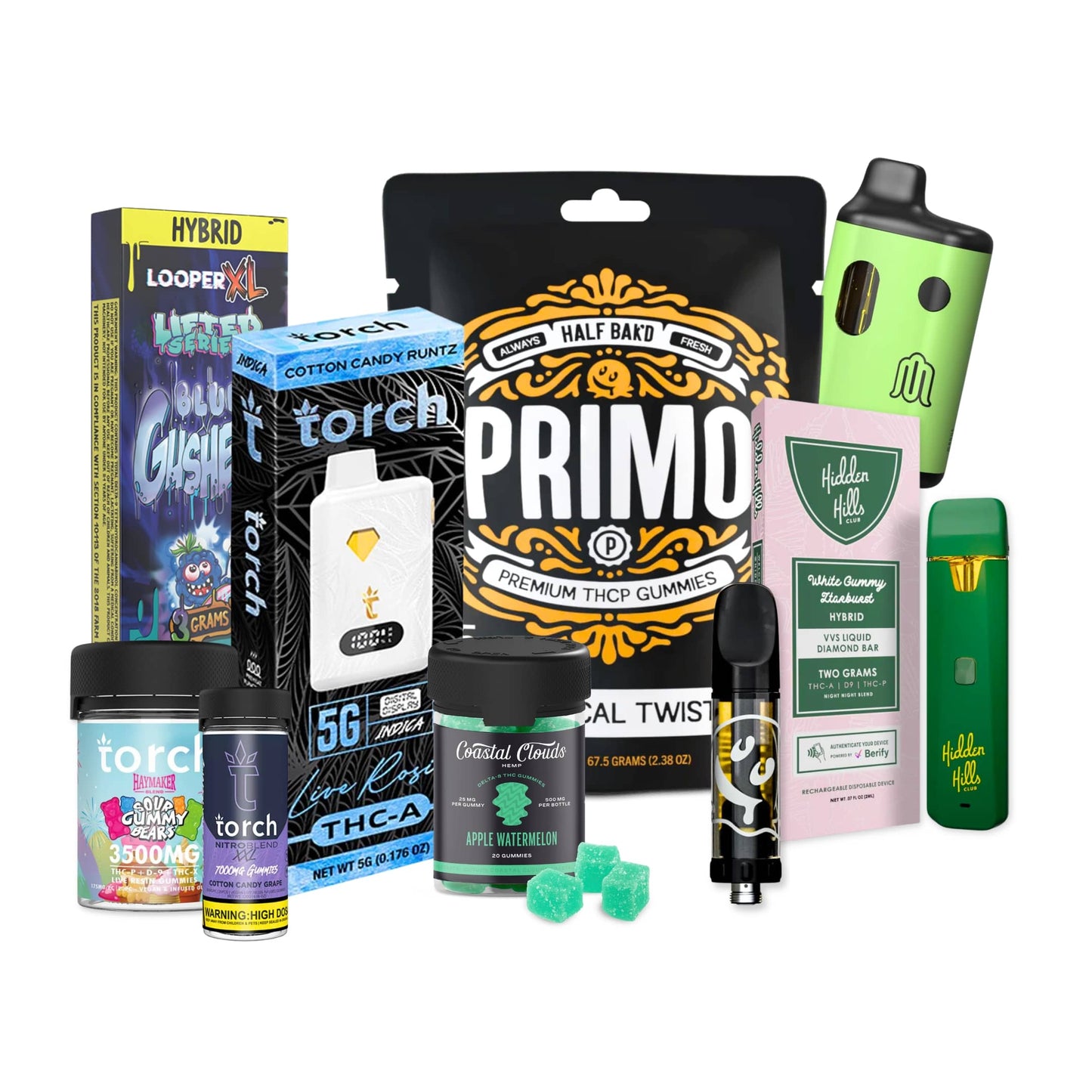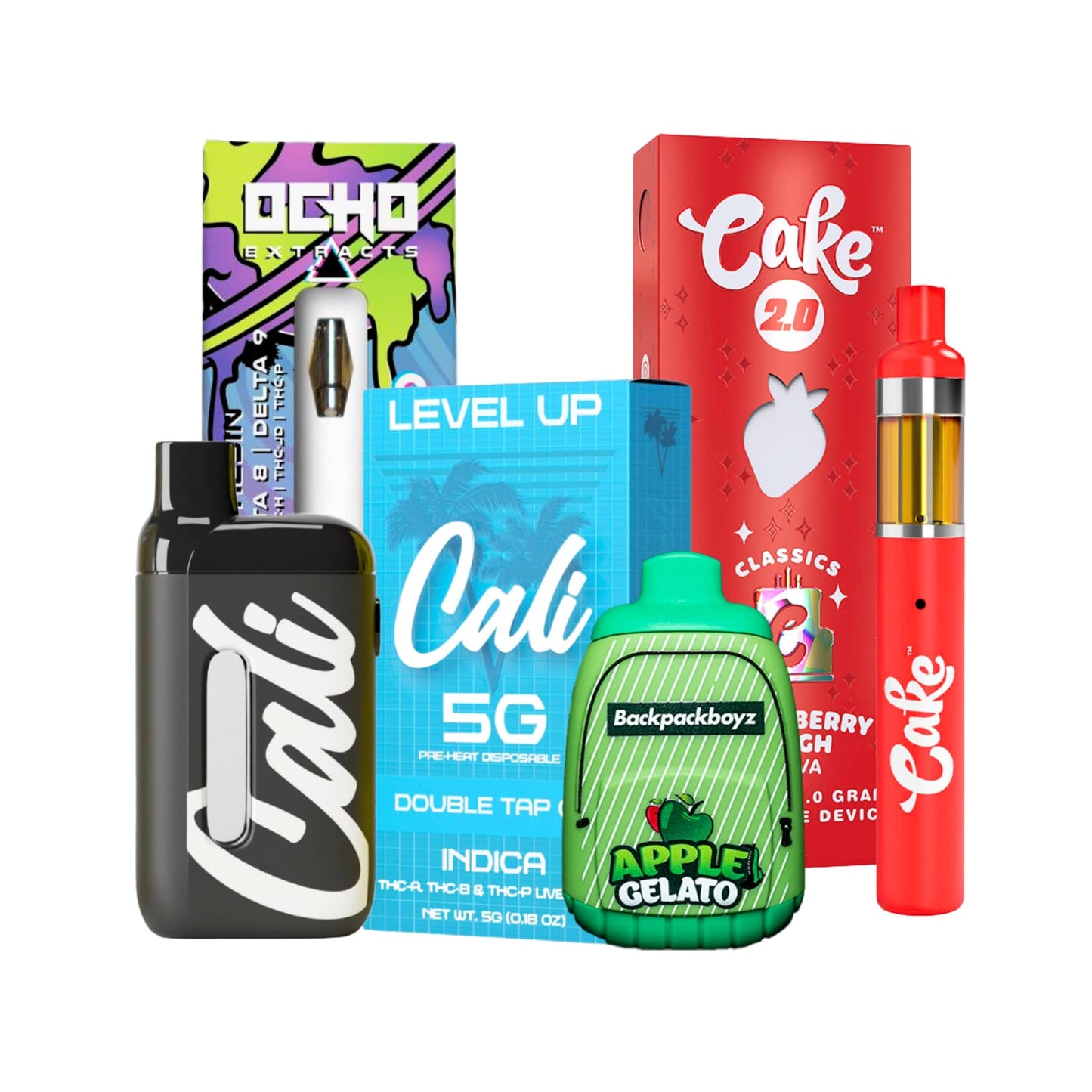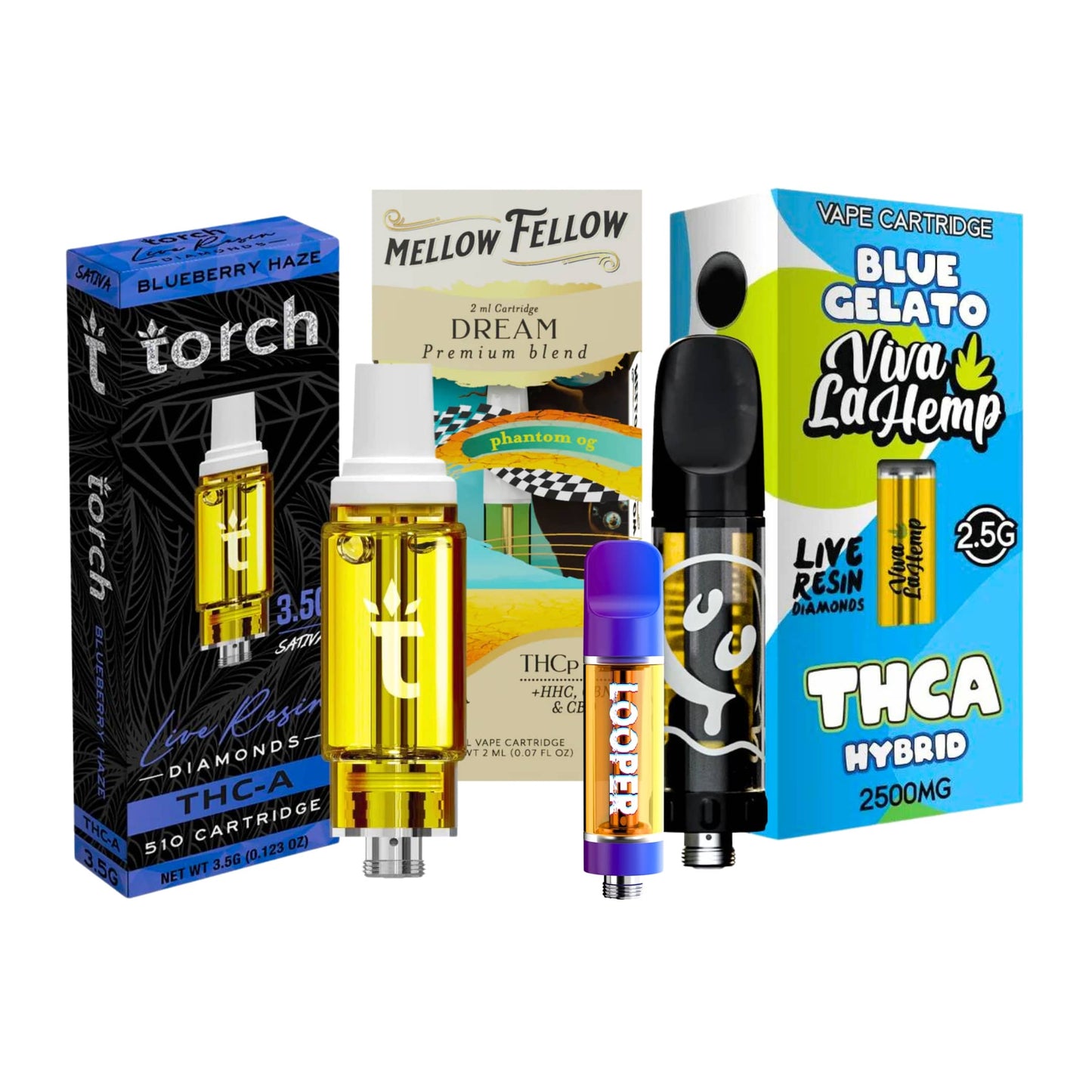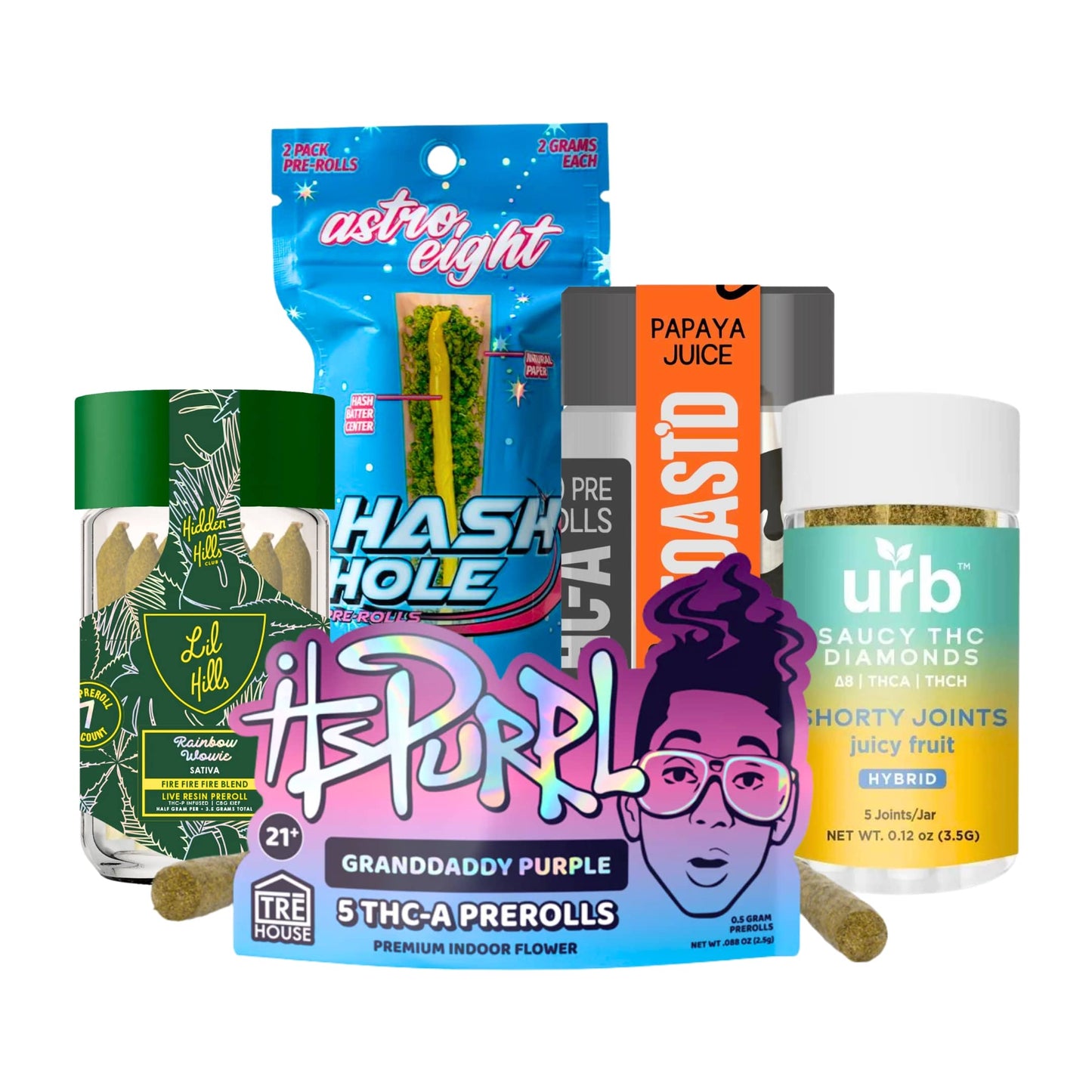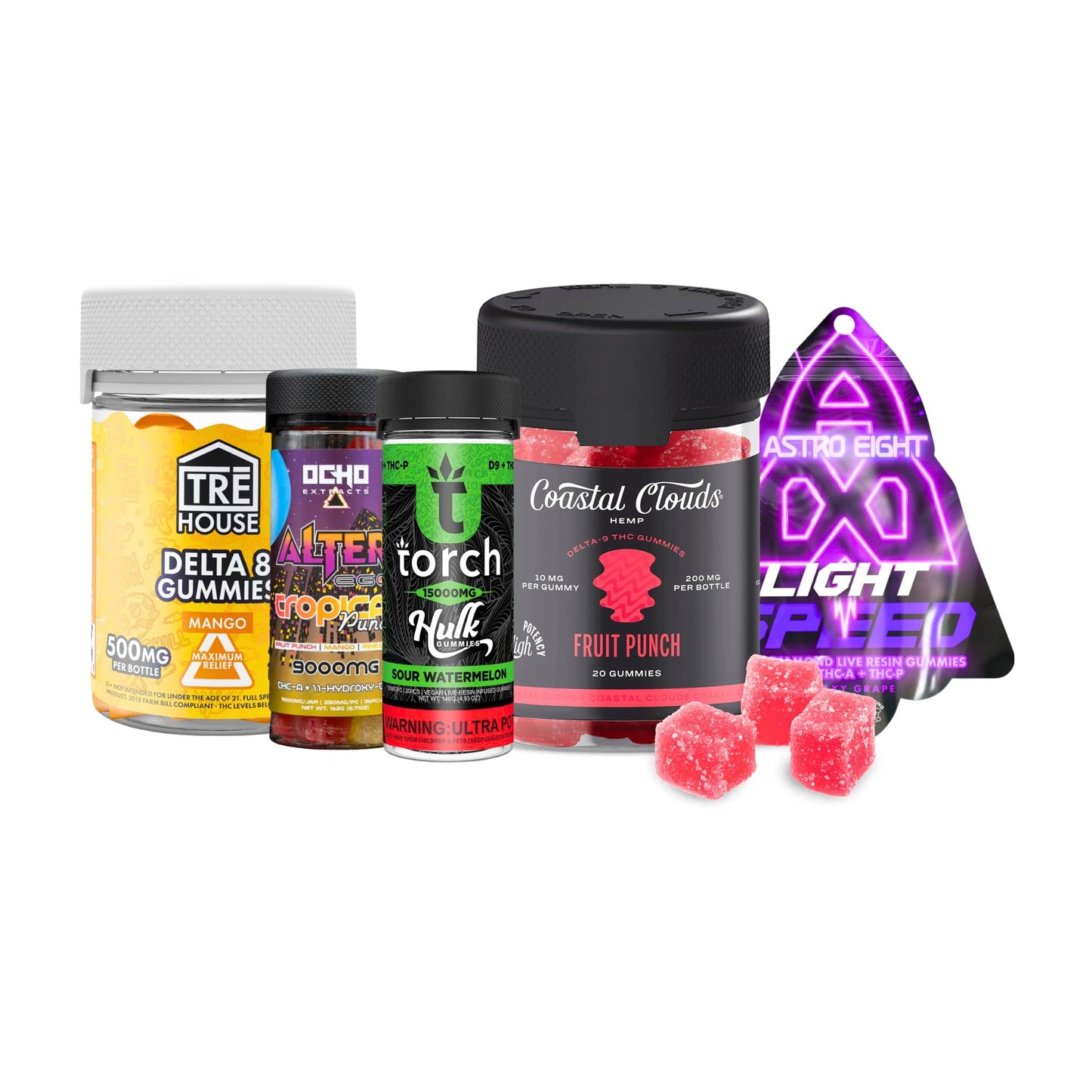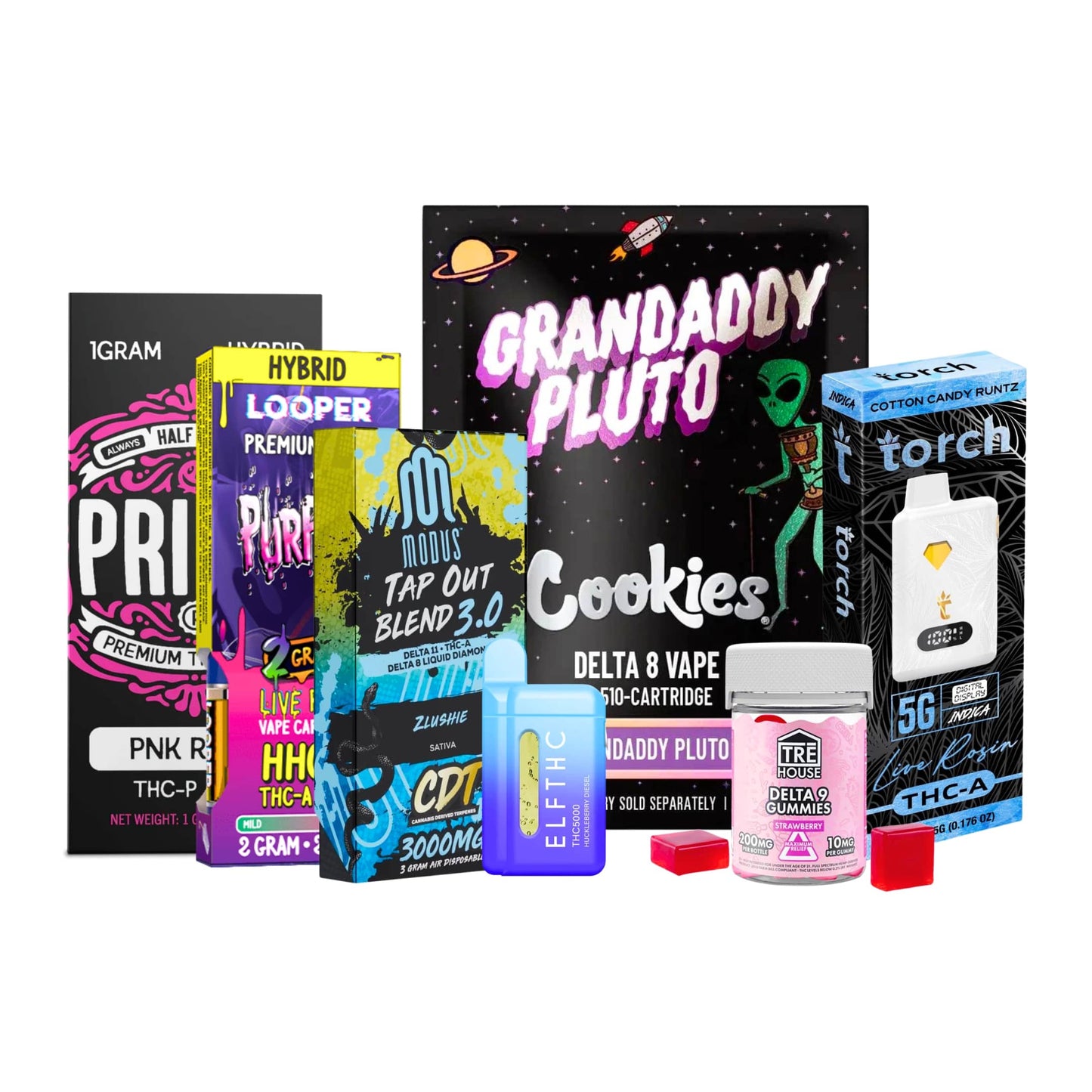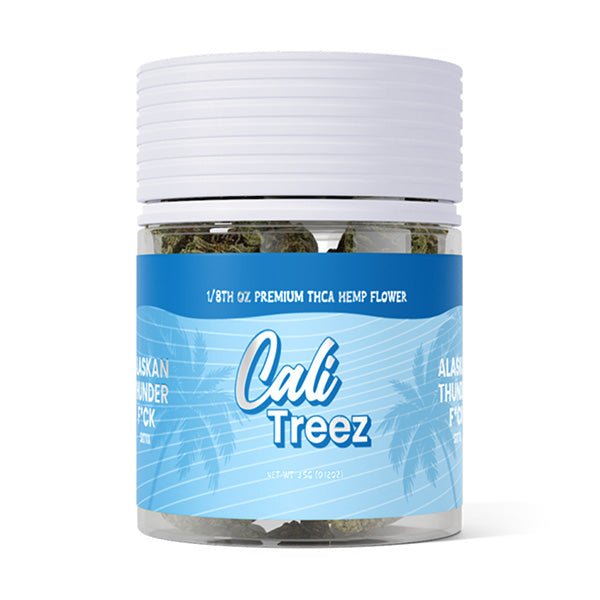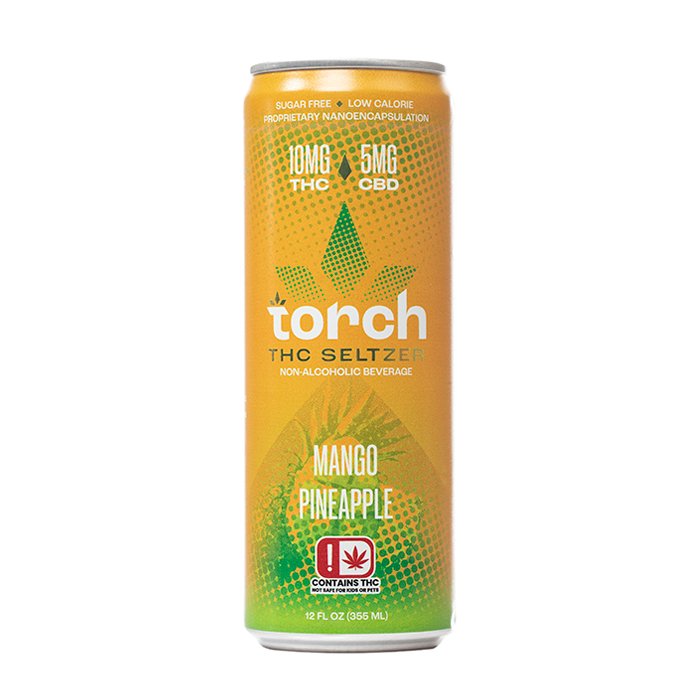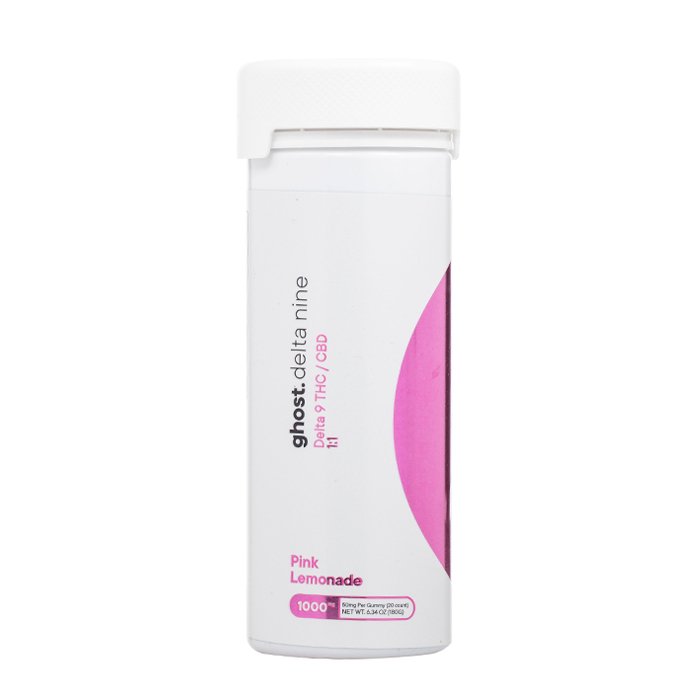Get a FREE Gummy or Vape
Sign up to get a FREE welcome vape or gummy on your first order when you buy 4 or more products.
THCP, or 9-Tetrahydrocannabiphorol, is the most potent cannabinoid discovered so far. Found in 2019, it has unique properties that set it apart from traditional THC. This article will explain what is THCP, its effects, and how it compares to other cannabinoids.
Key Takeaways
-
THCP is the most potent cannabinoid discovered, with effects up to 33 times stronger than traditional THC, thanks to its unique seven-carbon atom structure.
-
Even low doses of THCP can lead to intense psychoactive effects, so users should start slowly and be cautious.
-
The legal status of THCP varies by state despite federal legality, making it essential to check local laws before purchasing.
===ARTICLE_CTA===
What is THCP? Understanding the Potent Cannabinoid
THCP, or 9-Tetrahydrocannabiphorol, is recognized as the most powerful cannabinoid found in cannabis. It’s not just another cannabinoid; it’s a game-changer in the cannabis world, noted for its significantly stronger effects compared to traditional THC. Discovered by Italian researchers in 2019, THCP has captured the attention of scientists and cannabis enthusiasts alike for its unparalleled potency.
What sets THCP apart from other cannabinoids is its unique chemical structure. Unlike traditional THC, which has a five-carbon atom chain, THCP boasts a seven-carbon atom chain. This longer alkyl side chain allows THCP to bind to CB1 receptors up to 33 times more effectively than THC, resulting in its immense potency. Imagine the effects of Delta-9 THC, but magnified several times over—that’s what THCP brings to the table.
However, with great power comes great responsibility. The heightened potency of THCP means that even low doses can lead to strong psychoactive effects, requiring users to exercise caution. Breeding marijuana strains with higher THCP levels is also a complex and time-consuming process, adding another layer of intrigue to this potent cannabinoid.
Introduction
At Elevate Holistics, our mission is to provide comprehensive cannabis advice and connect users with knowledgeable cannabis physicians. This blog post explores THCP, a recently discovered cannabinoid that might redefine your cannabis experience. Understanding its chemical structure, effects, and legal considerations will help you make informed decisions about its use.
Although THCP offers exciting possibilities, approaching it with caution is wise. As with any potent controlled substance, its effects can vary, making it important to understand how it interacts with the body. Adhering to local laws and regulations is also important for a safe, legal experience.
Defining THCP: The New Cannabinoid
THCP is not just another cannabinoid; it’s a groundbreaking discovery in the cannabis industry. Italian researchers first isolated this compound in 2019 using advanced techniques. Since then, it has been recognized as the most powerful cannabinoid found in cannabis, significantly stronger than traditional THC. The discovery of THCP adds to the over 150 identified phytocannabinoids in cannabis, each contributing to the plant’s diverse effects.
One of the most intriguing aspects of THCP is its chemical structure. It features a longer alkyl side chain with seven carbon atoms, compared to the five-carbon chain in traditional THC. This structural difference allows THCP to bind more securely to CB1 receptors, enhancing its effects. THCP can bind to these receptors up to 33 times more frequently than THC, which explains its intense psychoactive properties.
Even at low concentrations in cannabis, THCP is thought to influence the potency of certain strains. However, its psychoactive effects may pose risks, with even low doses potentially causing heightened side effects. Respecting its power is key to a safe and enjoyable experience.
Chemical Structure of THCP

THCP’s chemical structure is crucial to its remarkable potency. Unlike traditional THC, which has a five-carbon chain, THCP features a heptyl side chain with seven carbon atoms. This difference significantly impacts how THCP interacts with the body.
The longer carbon chain in THCP allows it to bind more effectively to CB1 receptors, which are part of the endocannabinoid system. This enhanced binding affinity means that THCP can produce more intense psychoactive effects even at lower doses compared to THC.
In essence, the unique molecular formula of THCP is what makes it stand out among other cannabinoids.
How THCP Interacts with the Endocannabinoid System
The endocannabinoid system is a complex network of receptors that play a crucial role in regulating various functions in the human body, including mood and pain. THCP interacts with this system in a way that sets it apart from other cannabinoids. Its longer alkyl side chain allows THCP to bind to cannabinoid receptors 33 times more effectively than THC, leading to more pronounced effects.
THCP’s higher binding affinity to CB1 receptors primarily causes its intense psychoactive effects. Even at lower doses, THCP produces effects significantly stronger than Delta-9 THC. The differences in carbon side chains between THC and THCP greatly affect their interaction with receptors, resulting in THCP’s greater potency.
Knowing how THCP binds to these receptors explains its potent effects. This enhanced binding affinity leads to more intense psychoactive effects, making it a powerful option for those seeking strong therapeutic benefits.
===KLA===
Comparison with Other Cannabinoids
When it comes to cannabinoids, THCP is in a league of its own. Compared to other cannabinoids such as Delta-9 THC, Delta-8 THC, and THC-O, THCP stands out for its remarkable potency and unique chemical structure.
Each of these cannabinoids has distinct properties, and knowing these differences helps users make informed choices based on desired effects and experiences.
THCP vs Delta-9 THC
THCP and Delta-9 THC are both naturally occurring cannabinoids found in cannabis plants, but their effects and potency differ significantly. THCP has a 30 times higher CB1 binding affinity than Delta-9 THC, resulting in much stronger psychoactive effects. The longer carbon chain of THCP leads to heightened effects compared to Delta-9 THC, making it a more potent option for those seeking intense experiences.
In addition to its increased potency, THCP may offer longer-lasting effects compared to Delta-9 THC. This makes it an attractive choice for those seeking prolonged relief or extended euphoria. However, due to its strength, users should start with lower doses to gauge their tolerance.
THCP vs Delta-8 THC
While both THCP and Delta-8 THC are hemp-derived cannabinoids, they offer vastly different experiences. THCP is much stronger than Delta-8 THC, which is known for its milder psychoactive properties. This potent difference makes THCP an attractive option for those seeking more intense effects, while Delta-8 THC is often sought for its calming and relaxing properties.
THCP might be better for users seeking a more stimulating experience. Conversely, those desiring a gentler, more relaxing high may find Delta-8 THC more suitable. Knowing these differences helps users choose the cannabinoid that best matches their desired effects.
THCP vs THC-O
THCP and THC-O are both known for their powerful effects, but they differ in several key ways. THCP is a naturally occurring cannabinoid that can occur naturally, whereas THC-O is synthetic. While THC-O provides intense euphoria and relaxing effects, its effects may take longer to manifest compared to the almost immediate effects of THCP.
THCP is the clear winner for those seeking rapid onset of effects. Its immediate and pronounced effects make it a potent option for quick relief or an intense experience. Conversely, THC-O might suit those who prefer a slower onset and longer-lasting euphoria.
Effects of THCP
The effects of THCP are nothing short of extraordinary. This cannabinoid can induce effects that are somewhat psychedelic, offering a high that is over 30 times more intense than traditional THC. Its potent effects make it a powerful option for those seeking enhanced pain relief or sedative effects, especially for individuals needing high THC doses.
However, powerful effects come with potential risks. Users may experience side effects like anxiety, paranoia, and dry mouth. Novice users should start with a low dose and gradually increase to find their optimal level. This cautious approach helps mitigate adverse effects and ensures a more enjoyable experience.
Despite the potential for side effects, THCP holds promise for therapeutic applications. Its pronounced effects could offer significant benefits for those dealing with chronic pain, insomnia, or other conditions that require potent relief. As always, it’s important to consult with a healthcare professional before incorporating any new cannabinoid into your routine.
THCP Products on the Market

With THCP’s rising popularity, a variety of products have emerged on the market, including cartridges, tinctures, edibles, and concentrates. Brands like Binoid offer a comprehensive range of THCP products, such as THCP vape, THCP cartridges, THCP gummies, tinctures, and wax dabs.
When shopping for THCP products, prioritize safety and quality. Look for products that have undergone rigorous third-party lab testing to ensure safety and efficacy. Brands like PureKana and Bloomz emphasize transparency and quality assurance, providing reliable and potent THCP options.
Whether you’re interested in vaping, edibles, or tinctures, many THCP products are available to suit your needs. Purchase from trusted sources and verify third-party lab results to ensure high-quality products.
-
===PRODUCT_8963628663076===
-
===PRODUCT_9628162883876===
-
===PRODUCT_9615100444964===
-
===PRODUCT_9634853290276===
Legal Status of THCP
The legal status of THCP is a complex and evolving issue. Federally, THCP is legal in the United States if it is derived from legal hemp plants and contains less than 0.3% Delta-9 THC, as stipulated by the 2018 Farm Bill. However, the legality of THCP varies by state, with some states imposing stricter regulations despite its federal legality.
It’s essential for consumers to check local laws before purchasing THCP products to ensure compliance with state regulations. The legal landscape for cannabinoids is continually changing, so staying informed about current laws and consulting reputable cannabis law resources can help navigate this complex issue.
The Need for More Research on THCP
Despite the excitement surrounding THCP, research on this potent cannabinoid is still in its early stages. There are currently no comprehensive studies confirming its effects on humans, and much more research is needed to fully understand its potential and safety profile.
The long-term effects of THCP are still largely unknown. Additionally, its interactions and potential health benefits have not been thoroughly studied. As the cannabis industry continues to evolve, ongoing research will be crucial in uncovering the full range of THCP’s effects and its potential therapeutic applications.
Until then, consumers should approach THCP with caution and stay informed about the latest research findings.
Summary
In summary, THCP is a groundbreaking cannabinoid that offers extraordinary potency and unique effects compared to traditional THC. Its discovery has opened new possibilities in the cannabis industry, from therapeutic applications to new product innovations. However, the heightened potency of THCP also requires careful consideration and responsible use.
As we continue to explore the potential of THCP, it’s clear that more research is needed to fully understand its effects and safety profile. Staying informed and adhering to local regulations can help ensure a safe and enjoyable experience with this powerful cannabinoid. Whether you’re a seasoned cannabis user or a curious newcomer, the world of THCP offers exciting possibilities worth exploring.
Frequently Asked Questions
What makes THCP different from traditional THC?
THCP stands out from traditional THC because it has a longer alkyl side chain, which helps it bind more effectively to CB1 receptors and gives it way stronger effects. So, if you're looking for something with a bigger punch, THCP is the way to go!
Is THCP legal in the United States?
THCP is federally legal if it's derived from hemp and has less than 0.3% Delta-9 THC, but watch out for state laws since they can differ. Always check your local regulations to be safe!
What are the potential side effects of THCP?
THCP can lead to side effects like anxiety, paranoia, and dry mouth. It's best to start low and go slow to find what works for you.
How does THCP compare to Delta-8 THC?
THCP packs a stronger punch than Delta-8 THC, giving you more intense effects while Delta-8 tends to be milder and more relaxing. If you're looking for something with a kick, THCP is the way to go!
What types of THCP products are available on the market?
You can find THCP products like cartridges, tinctures, edibles, and concentrates out there. Brands such as Binoid, Fresh, and PureKana have got you covered with tested options!



